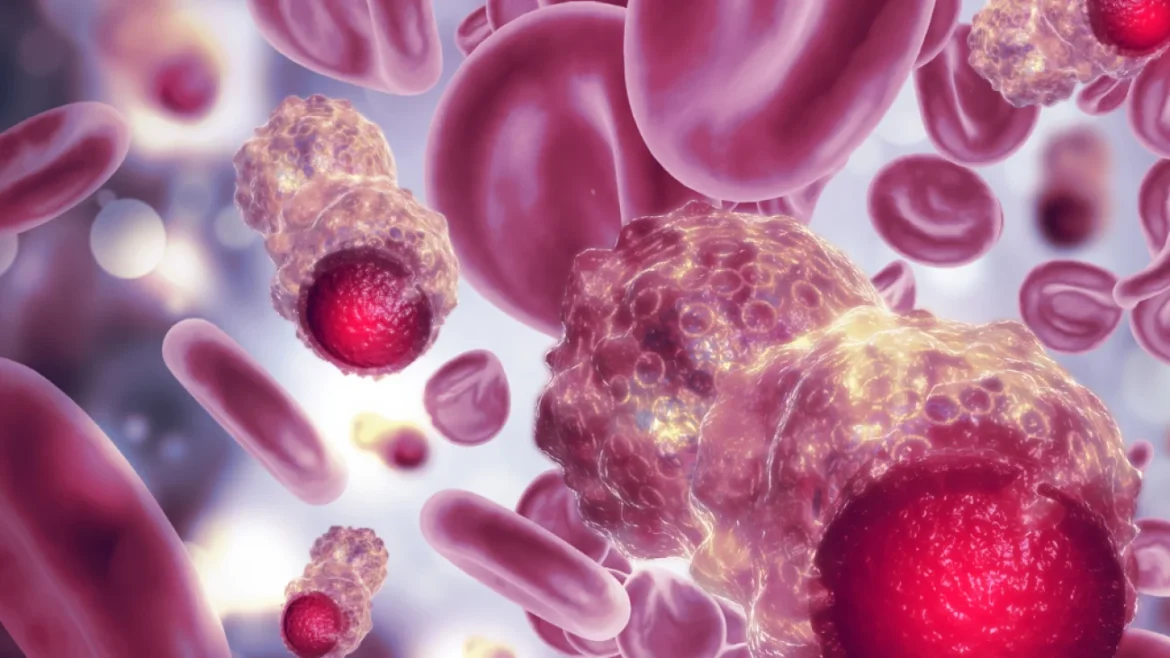For thousands of England’s multiple myeloma sufferers, the recent approval of the belantamab mafodotin blood cancer medication represents a turning point. Treatment choices have been few for many people suffering from severe blood cancer, particularly if conventional treatments cease functioning. Thanks to a novel new medication, longer survival and improved outcomes are once more expected.
The first of its kind to be offered via a national healthcare system anywhere in the world is this innovative medicine. It not only shows a medical innovation but also the dedication of the healthcare community to raise patient outcomes by means of evidence-based treatment and creativity.
Table of Contents
ToggleHow Does Bel TMZ Mafodotin Blood Cancer Treatment Work?
Unlike conventional chemotherapy or radiation, the belantamab mafodotin blood cancer treatment kills cancer cells by a highly focused method. It falls into a family of medications called antibody-drug conjugates (ADCs), which mix the power of cancer-fighting pharmaceuticals with the specificity of antibodies.
Belantamab mafodotin’s antibody searches for a protein known as BCMA, which is found on many myeloma cells. It enters and delivers a strong cell-killing poison once it hooks onto a cancer cell. Delivering its payload straight within the cancer cell reduces damage to surrounding healthy cells. Many professionals refer to this as a “Trojan horse” treatment since it discreetly removes the enemy from within.
Combined with other medications like bortezomib and dexamethasone, this treatment has been shown to greatly extend remission times given via intravenous infusion every three weeks. Patients treated throughout trials found their illness stayed stable for up to three years. On previous medications like daratumumab, on the other hand, patients sometimes saw their illness worsening within a year.
Why Does This Therapy Change Everything for Multiple Myeloma?
Particularly in later stages, multiple myeloma is a difficult condition to treat. It is important for combating infection, as plasma cells are found in the bone marrow. Myeloma over time disturbs the synthesis of healthy blood cells, causing anemia, bone damage, kidney problems, and a compromised immune system.
For myeloma patients, historically, the treatment scene has consisted of chemotherapy, steroids, stem cell transplants, and more recent immunotherapies. For patients whose cancer recurs following first-line therapy, however, choices are soon few. That is where the belantamab mafodotin blood cancer treatment closes a significant void.
According to clinical research, this treatment not only increases quality of life but also extends survival. Less harmful to healthy tissue, reduces hospital stays, and lets patients continue more regular daily activities. It offers fewer side effects and improved control of the illness, therefore benefiting patients and their families. Read another article on Backlash at Macmillan Cancer Support
Eligible Individuals for This Treatment
Recent advice from English health officials indicates that over 1,500 patients annually will be able to access the belantamab mafodotin blood cancer medication. Usually, having relapsed or refractory multiple myeloma, these people have either had their cancer return or responded poorly to past treatments.
One such patient is Sheffield-based Paul Silvester, 60, who was diagnosed with multiple myeloma in 2023. Following his first therapy failure, he was given early access to belantamab mafodotin via Royal Hallamshire Hospital under a clinical programme. Paul remarkably went into remission three weeks after his first dose.
“I feel as though this approach has brought the party balloons back into the house,” Paul said. “It turned my life around when I felt I had few choices.”
How are professionals responding to the approval?
Researchers, patient advocacy groups, and healthcare professionals all appreciate the NHS’s choice to provide the belantamab mafodotin blood cancer treatment. It points to an increasing understanding of the need for tailored treatments and precision medicine for cancer treatment.
“This approval shows the development we are making in providing smarter, more effective treatments,” said a national cancer director. Patients today can lead longer, better lives.
Pushing for its permission was much aided by advocacy groups as well. A top blood cancer organization underlined that many families would find access to this treatment to be transforming. They hailed the NHS for being the first system worldwide to make this cutting-edge treatment generally available.
“We’re committed to delivering treatments that offer both clinical value and cost-effectiveness,” health official Helen Knight, engaged in the evaluation, said. This choice results in both.
In case patients believe they qualify, what should they do?
Now is the moment to discuss multiple myeloma with your healthcare practitioner if you or a loved one is living with it and past therapies have not worked. Find out whether the belantamab mafodotin blood cancer treatment qualifies you.
Although access will first be concentrated on those who satisfy particular medical requirements, as more data comes in and treatment approaches change, more people could become qualified. Your chances of benefiting from the most recent discoveries rise if you keep educated and involved with your care team.
In what ways is this approval changing cancer treatment going forward?
Adoption of the belantamab mafodotin blood cancer treatment in England points to a more general change toward patient-centered, innovative healthcare. The healthcare system is opening the path for more focused, efficient, humane cancer treatment by adopting innovative technologies and therapies.
The introduction of this treatment also provides a model for nations around the world. More will probably migrate toward similar approvals and more general access shortly as global health systems track the effects of this therapy in the UK.
Last Thoughts
For patients battling multiple myeloma, the arrival of the belantamab mafodotin blood cancer medication promises hope, respite, and fresh strength. For thousands of patients, it’s more than simply a medication—it’s a fresh lease on life. This treatment marks one of the most interesting advancements in recent cancer treatment history with extended remission, fewer side effects, and better quality of life.
See your doctor right now if you are negotiating the obstacles of blood cancer. You might qualify for a treatment meant to really alter your future.


